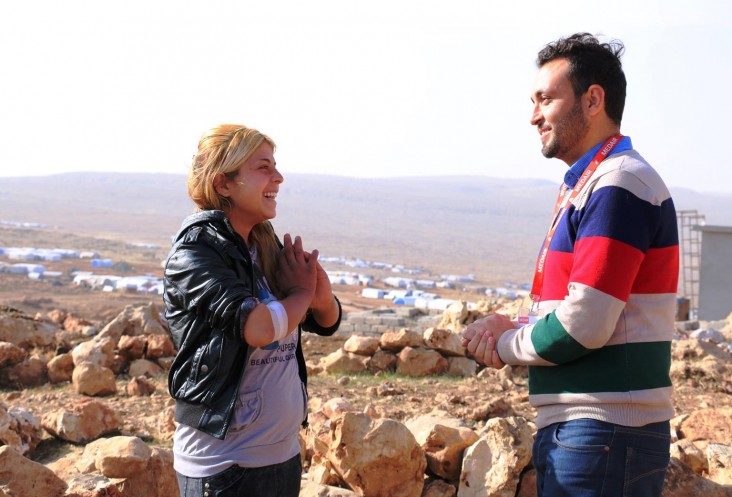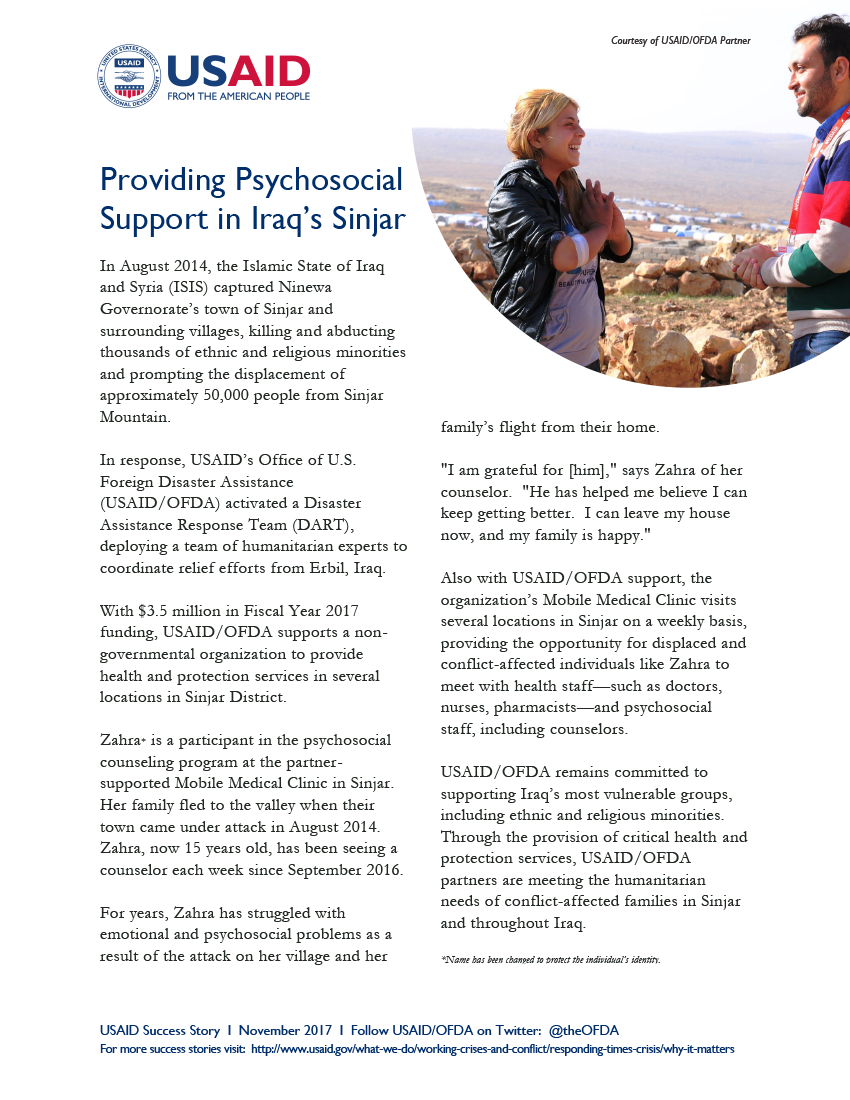- What We Do
- Agriculture and Food Security
- Democracy, Human Rights and Governance
- Economic Growth and Trade
- Education
- Environment and Global Climate Change
- Gender Equality and Women's Empowerment
- Global Health
- Humanitarian Assistance
- Transformation at USAID
- Water and Sanitation
- Working in Crises and Conflict
- U.S. Global Development Lab
Speeches Shim

In August 2014, the Islamic State of Iraq and Syria (ISIS) captured Ninewa Governorate’s town of Sinjar and surrounding villages, killing and abducting thousands of ethnic and religious minorities and prompting the displacement of approximately 50,000 people from Sinjar Mountain.
In response, USAID’s Office of U.S. Foreign Disaster Assistance (USAID/OFDA) activated a Disaster Assistance Response Team (DART), deploying a team of humanitarian experts to coordinate relief efforts from Erbil, Iraq. With $3.5 million in Fiscal Year 2017 funding, USAID/OFDA supports a nongovernmental organization to provide health and protection services in several locations in Sinjar District.
Zahra* is a participant in the psychosocial counseling program at the partnersupported Mobile Medical Clinic in Sinjar. Her family fled to the valley when their town came under attack in August 2014. Zahra, now 15 years old, has been seeing a counselor each week since September 2016.
For years, Zahra has struggled with emotional and psychosocial problems as a result of the attack on her village and her family’s flight from their home.
"I am grateful for [him]," says Zahra of her counselor. "He has helped me believe I can keep getting better. I can leave my house now, and my family is happy."
Also with USAID/OFDA support, the organization’s Mobile Medical Clinic visits several locations in Sinjar on a weekly basis, providing the opportunity for displaced and conflict-affected individuals like Zahra to meet with health staff—such as doctors, nurses, pharmacists—and psychosocial staff, including counselors.
USAID/OFDA remains committed to supporting Iraq’s most vulnerable groups, including ethnic and religious minorities. Through the provision of critical health and protection services, USAID/OFDA partners are meeting the humanitarian needs of conflict-affected families in Sinjar and throughout Iraq.
*Name has been changed to protect the individual’s identity.


Comment
Make a general inquiry or suggest an improvement.